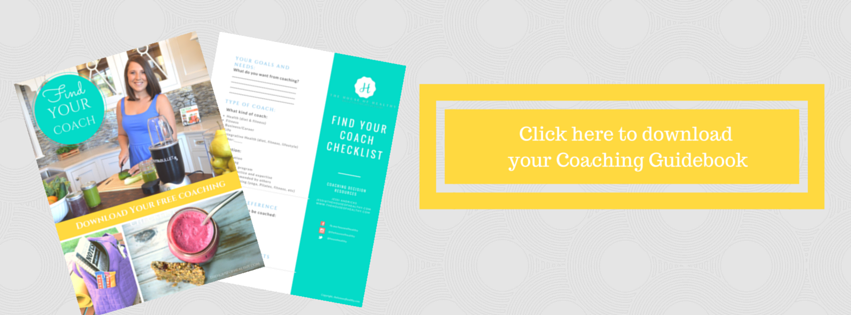
We’ve all heard the scientific research about diets and the conclusions that most have come up with – they don’t work. Most diets set you up for short term results, that cause you to come back to the same (or a new) program time and time again. These are often programs that restrict one or more food groups, have rigid rules, make you (and everyone else) follow a specific one-size-fits-all protocol and are often packed with less-than healthy shakes, supplements and bars that you don;t eat once the program ends. As soon as it’s over or you’ve met your goals, you often find yourself isolated, with no plan on what to do now and you gain all the weight and unhealthy habits back, sometimes twofold.
These are the reasons we know that diets fail and don’t work. But there are other reasons that you might find surprising. People working one-on-one with certified and trained professionals often find their diet or program, designed specifically for them, fails them as much as these other one-size-fits-all diet programs. And why is that? What do you do if you are on a “diet” that is more of a lifestyle change, tailored to exactly what you need, is not restrictive and is run by a trained Health Coach/dietitian/nutritionist, but it still fails?
The reasons might not have anything to do with the program itself, but more with your attitude and outlook before, during and after the program.
5 (surprising) reasons your diets keep failing:
1)You’re not willing to get uncomfortable:
You know the feeling. Your Health Coach gives you a recipe, workout move or healthy habit to start using and you aren’t sure what to do with it, how to do it or you doubt you’ll like it. You get a weird feeling and discomfort, because it makes you step outside your usual comfort zone – the zone that has kept you in your less than healthy lifestyle for quite sometime. This is often the moment when you first start to doubt yourself and your program, and contemplate quitting or not following through, because it would be so much easier and more comfortable to do so. And that is when you start to see the program as “failing” you.
It happens to almost everyone.
No one like being uncomfortable or unsure of what they are doing, but in order to make small changes that lead to big results, you have to be willing to step outside of your comfort zone and try some new thing. If you aren’t willing to out your comfort aside, you probably won’t have success with your program, or any diet, no matter who designs it or how tailored it is to your needs.
2) You’re not willing to make a change (let go)
You’ve been there – someone asks you to do something very trivial and small in your day in a different way, (like send an email to a new address or text instead of call, or maybe your favorite salad is no longer available at your go-to spot) and it throws your entire day out of whack. You get in a funk, feel uneasy or even angry and you just want things to go back to how they were before, even if this small switch makes things better. You might find the new email is easier to remember, texting saves you time and you find a better salad for lunch.
No matter what it can cause stress and starting a health program is no different. Getting healthy means creating new habits in your life that help you to drop or lessen the unhealthy habits you had formed in your daily routine. This means there is one thing you can be sure of – change.
Change is often scary, because it can leave you with a sense of unease (that discomfort thing from earlier), but also a sense of not knowing what to expect. It bursts your bubble, even when expected, and forces you to do things in a way you normally wouldn’t, even when it could better for you or more enjoyable.
If you’ve been given an new food to try, as a substitute for a food you love (like coconut sugar for regular sugar in your coffee, or non-dairy milk instead of regular milk or perhaps organic over conventional apples), you might see this as too big of a change, even when the food tastes better and you like it more. It is the change, and the thought of being “wrong” for so long or not liking the new thing, that makes it so hard.
In order for any diet or program to work, there has to be an element of change. Refusal to change means a refusal to make the changes you need in your lifestyle, which is the entire point of the program or diet. To make it work, you have to take the step and make the change, no matter how big or small, and have trust that it can either be temporary or that you might actually love it.
3) You’re not able to release control
If you’ve ever planned an event out to “t”, complete with a schedule, color palette, food display and guest list, or perhaps your last diet was planned out by you with each precise meal, including ingredients, shopping list, calories/carbs/fats/points, and when you would be eating, then it is safe to say you probably like some control in your daily schedule. And when that control is given up to someone else, or you are a team player in it and not the main leader, you find it hard to participate or follow through.
Control can be a hard thing to let go of, especially when it comforts you and becomes a safety net or crutch.
Many times a program fails you, because you refuse to let go of the control around the program. No matter what type of diet or health program you being, you are bound to need to loosen your grips on the controls. After all, if you were able to control your own program, you would have gotten your results by now and wouldn’t need the help of a trained coach. A good program should be customized to what you need, or flexible enough that you can make it work for your needs, but the advice, structure and strategies are not always up to you. This means letting go a bit and seeing what they have to share with you and offer you, before you try to rework, rethink or take over your plan. It doesn’t mean you have no say at all, you definitely should, but that you tell your coach your struggles and let them give you some ways to work through it, together.
4) You’re don’t want to view your Health Coach as an expert:
Sometimes, it is easier to think that you know best and know more, even than the person you have hired to help you out. Maybe you have had someone do work on your house, but felt that you knew more about it than they did, you hired a friend or family member but know them too well to take them seriously, or you didn’t follow your landscapers advice because it wasn’t what you had researched. There are definitely times for this, but if it starts to become a pattern, it can set you up for failure when you do ask for help. If you always see yourself as knowing more, or being the smartest and most knowledgeable, you won’t be able to follow the advice or plan of anyone else, including your Health Coach.
If you can’t see your coach as an expert, rather than yourself, you won’t follow through on their advice and your program won’t be successful. It doesn’t matter if they have spent years training and are the most educated coach around, if you don’t allow yourself to trust them, you won’t be willing to see their expertise.
Some of this is because of uncertainty, which comes along with anything new, and some of it is a fear of not knowing enough or looking ignorant. If you pride yourself on being knowledgeable, intellectual and overall pretty smart, you might find it hard to follow a diet program planned by someone else, simply because it makes you feel inadequate. Instead of negating the plan because of a lack of confidence in yourself and trust in yourself, give the program time to work. Follow the recommendations and give feedback to what you did like, what you tried and what didn’t quite work, and why it didn’t work. This will give you both a place to work from and towards, to ensure your program is successful this time.
5) You’re not ready to meet your goals
You sign up for something, you follow through and right before the finish line, you find a reason to stop or quit. Suddenly, it isn’t worth it or it isn’t working anymore. You give up and move on to the next thing, following the same pattern.
Sometimes this is true and a program doesn’t really work at the end, but most of the time, it is not the program, but you that isn’t working at the end and it is all about your goals.
At the start of any diet or program, especially a custom one, there are goals that are set. These goals often have you check in at a halfway point and again at the end of the program to see how you are progressing and how far you have come. These goals help keep you on track and help you stay motivated, so you get the most out of your new lifestyle habits and continue with them. They can also be quite scary to actually reach.
Many people find, and you might too, that reaching your goals isn’t all that you expected. Sometimes it is overwhelming to get there and you aren’t ready for the praise, self-confidence and awareness that comes with meeting a huge goal. Sometimes you aren’t ready to stop climbing towards that goal and feel a bit underwhelmed once you reach it. And sometimes you might feel completely overwhelmed, not knowing what to do next or how to maintain your goal for the rest of your life. This is enough to stop anyone from completing a program or goals and just stick with what they know, no matter how much they wanted to change in the beginning.
If you find yourself, thinking the “What then, what if or what next?” questions, it could be the trigger that makes your program fail. Instead of stopping, ask for help with this. Make sure you discuss it with you Health Coach, so thy can support you along the way and help you make a plan for what to do after the program ends.
If you have found that diet after diet fails you, even when it is made just for you, one or more of these 5 reasons might be the culprit. Take some time to think through what really went wrong with each of your plans and see where they might have actually worked instead. Identifying your habits is the hardest, but biggest step to making healthy habits that last a lifetime.
If you are ready to push past these blocks and finally make changes, be sure to check out my individual health programs, Simply Healthy for Life, where we work together one-on-one to create small changes and big results in your health and wellness, and schedule a FREE Discovery Session to get started.
Not sure about hiring a coach to work with you? Check out the “Hire a Coach Checklist” to see if it sounds like something that is right for you. You can download it by clicking below.
Enjoy!
![]()


